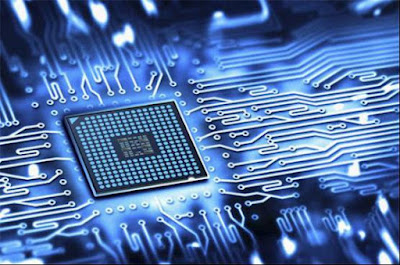Recently, Xinsheng Technology Co., Ltd., a wholly-owned subsidiary of China Mobile's Internet of Things subsidiary of China Mobile, officially operated independently in July 2021. According to the future layout of Xinsheng Technology, the company will devote itself to the research and development of IoT chips and applications.
Facing saturated personal user market, and cellular network operators seek transforming and breaking through
In addition to the hot market and the influx of capital, one cannot help but ask, why does China Mobile cut into the IoT chip track at this time?
The reason is that, on the one hand, the mobile phone growth ceiling is becoming more and more obvious. After the personal user market is saturated, operators urgently need to transform, and then focus on the market cake of the Internet of Things. After China Mobile’s big connection strategy was proposed in 2016, The Internet of Things connection has experienced rapid growth, and there is also an extremely high demand for Internet of Things chips.According to the data of the "Economic Operation of the Communications Industry from January to May 2021" released by the Ministry of Industry and Information Technology on June 24, as of the end of May 2021, three basic telecommunications companies have developed 1.258 billion cellular Internet of Things terminal users. Among them, end users used in smart manufacturing, smart transportation, and smart public utilities accounted for 17.3%, 17.6%, and 22.1%, respectively. In addition, the total number of IPTV (Internet TV) users reached 330 million, a net increase of 15.12 million over the end of the previous year.
In addition, according to data released by IoT Analytics in 2020, the number of mobile IoT connections of the three major operators has reached 75% of the global market, and China Mobile has occupied half of the global market with a share of 54%.
On the other hand, over the years, operators have accumulated hundreds of millions of user bases, and the surge in traffic and soaring terminal applications have not brought operators matching high incomes. At that time, some insiders believed that in the Internet of Things era, Operators will become traffic pipes.
Obviously, operators do not want to be just a simple flow channel, and are unwilling to be a wedding dress for others, and they have begun breakthroughs and innovations in the application and service model of the Internet of Things.
Therefore, China Mobile is working step by step in the field of Internet of Things. In addition to doing a good job in its old business, it is also actively participating in the construction of the underlying.
As one of the three major operators, China Mobile has a wide coverage of 5G base stations and can provide more communication support for its IoT chips. The base station business and the IoT chip business can work together better. Moreover, the mobile 2G network has gradually withdrawn, and NB-IoT will carry more low-rate IoT applications.
The establishment of Xinsheng Technology not only indicates that China Mobile will achieve chip self-sufficiency in at least some links, but is also a new attempt for its future business layout.
Relying on IoT chips to expand future business territory
China pays attention to the right time and place, and China Mobile is no exception when it comes to mobile Internet. If it is time for China Mobile to enter the Internet of Things chips now, then decades of deep industry cultivation and talent training are equivalent to geographical advantages and people.
In terms of geographical advantages, IoT chips are complementary to China Mobile’s communications business and can expand China Mobile’s business territory.
From a functional point of view, communication chips are only used where calculations are needed, while IoT chips can be used in all aspects of daily life, such as doors and windows, home appliances, switches, etc., paying more attention to the pertinence of the scene.
Compared with traditional communication chips, IoT chips have lower cost, smaller size and more comprehensive functions, which can improve the flexibility of China Mobile's business, and IoT chips have a broad market and prospects in the future.
China Mobile's previous development of gigabit broadband, TV boxes, etc., has now entered the Internet of Things chip market, and it is very likely that it will be able to take a share in the field of smart homes in the future.
In terms of people and people, China Mobile has been improving the market-based talent selection mechanism. After all, the development of technology is a gradual process. Short-term market enthusiasm and huge capital investment cannot mature the industry. Domestic chips are the most important thing to solve the talent aspect. problem.
Earlier, Ren Zhengfei said in an interview with the media: "In the past, the policy of developing chips was to spend money, but now it is not a panacea. We also want to spend money on mathematicians, physicists and chemists. China wants to achieve independence. Innovation requires the cultivation of talents and the search for talents from all over the world. Only in this way can innovation be implemented and the world can be embraced."
In coincidence, BYD founder Wang Chuanfu also publicly stated the importance of talent: "Chips are man-made, not made by God!"
Therefore, if China wants to realize the autonomy of chips and other core technologies, it may not be possible to rely solely on spending money. If workers want to do well, they must first sharpen their tools. The development of the industry requires personnel training and introduction, basic theoretical research, Make great efforts in optimizing the scientific research environment.
In short, the great waves of the times are rolling forward, and the excitement of domestic chips has just begun.






No comments:
Post a Comment